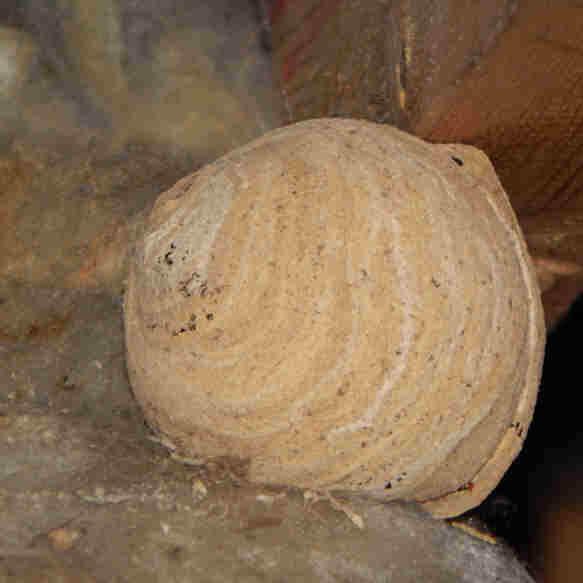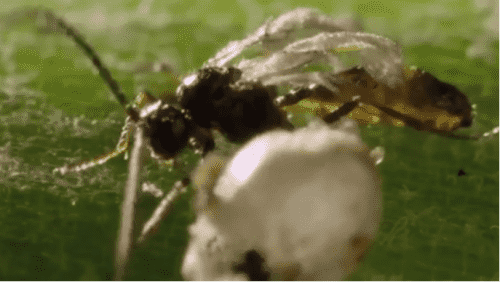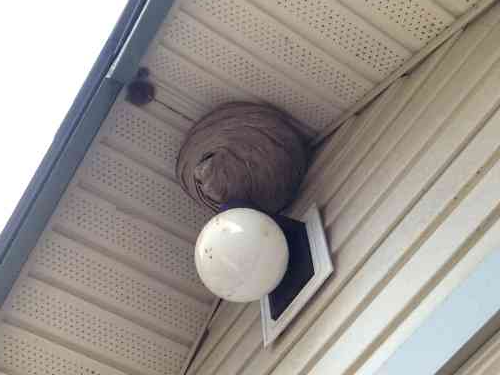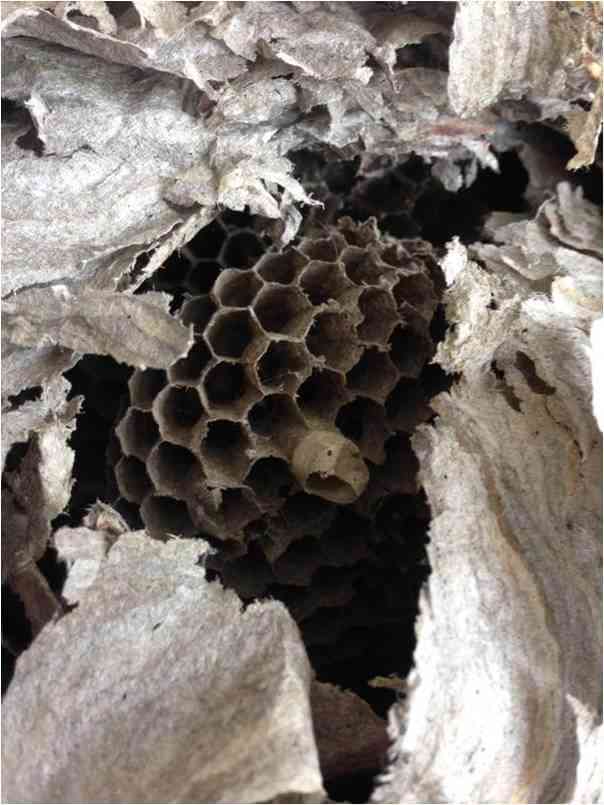Wasp Sting Treatment And First Aid
Updated: 13th February 2021
Wasp stings (or yellow jacket stings) are a cause of concern for many, especially during the Summer months.
Here is some guidance on what to do to treat a wasp sting, and also preventing stings in the future - most of these tips are very simple measures you can take.
At the end of this post, I also include a short review of some of the (deet-free) products available out there to help repel wasps and other stinging and biting insects, and a link to a further page for repelling wasps in specific situations.
Treating
wasp stings is very similar to treating bee stings. However, there is
no sting to remove, as is the case should a sting be caused by a honey
bee.
Also, the composition of the venom is slightly
different between wasps, bees and hornets, and so reactions to a
stinging incident can be different, even though wasp sting first aid is
similar to that for bee stings.
Bee stings are a little acidic, whereas wasp stings have a pretty much neutral in pH.
Wasp sting first aid: simple steps
1. Wash the area with cool water.
2. Apply an ice cube or ice pack to reduce swelling or cold flannel.
3. If the sting is very painful or very itchy, apply a soothing lotion, such as calamine lotion, or a suitable cream or ointment containing an antihistamine or local anaesthetic. Ensure you read the label and only apply products that are appropriate for you.
You could also try a venom extractor kit - this is something you would have to have at home already, in case of stings.
4. An analgesic,
such as paracetamol or aspirin, may also be taken if appropriate.
Always read the label and remember there are restrictions for the taking
of medicines in children, dependent upon age. Do not exceed the
recommended dose.
5. If you are concerned, or if symptoms persist (for example, with major swelling), consult a health care professional.
6.
If the sting has occurred in a sensitive area, such as close to the
eye, nostril, ear, or in the mouth, consult your doctor immediately, or
go to hospital.
7. If you begin to have difficulty breathing or
swallowing, or find yourself wheezing or feeling dizzy call an ambulance
or go to the hospital immediately. As with bees, a wasp sting reaction
can be very serious. Although anaphylactic shock is rare, it is
important to recognise that it can nevertheless occur. Likewise, should
you experience any other symptoms soon after a sting, such as nausea
and vomiting, stomach ache, diarrhoea, seek assistance immediately.
8. Note: If you find some-one experiencing anaphylactic shock
following a wasp or other insect sting or bite (including mosquitoes or
tick bites), check to see whether they are carrying an Epi-pen - they
may need your assistance to administer the Epi-pen injection immediately, and then seek medical attention.
If you are aware that you have an allergy to bee and/or wasp stings, ensure you carry an epi-pen with you at all times, and you could consider carrying a charm or pendant such as the one featured on the left, to alert people that you have an allergy.
Wasp bites?
A wasp sting is sometimes presumed to be a wasp
bite. Wasps do bite, however, they do so when:
- biting caught prey or
- using their mouths in building their nests.
Stings are the means of defence, and wasps will sting (rather than bite) when they perceive a threat.
Will killing a wasp attract more of them?
You may be tempted to splat or squash a wasp, but it is far better not to kill wasps because it you may only attract more
of them. But why?
On death, wasps release pheromones that act as a warning of threat to other wasps, hence you will risk provoking further attack.
See the information below and the link to my new page about preventing wasp stings.
Preventing wasp stings
Here are my tips:
- Use a deet free, non-toxic, natural repellent.
- Wasps are
attracted to sweet sticky drinks and foods. Use a sealed drinking cup with a straw. This is especially important for children, and if going on a picnic.
- When eating on the move or having a picnic, try to opt for finger foods that can be popped into the mouth quickly whilst most of the food remains in a sealed container.
- Take wet wipes with you to clean around a child's mouth and also fingers, and use paper towels to dry the areas afterwards.
- Eat sugary items and fruit indoors, away from
wasps.
- Learn not to panic and do not wave your arms around. Move calmly and swiftly away from the wasp, and leave them alone. Teach children to behave in the same way. Usually if wasps are coming toward you it is because they are investigating rather than because they have decided to attack you. I have never been stung and believe it is because I do not release fearful or angry chemicals (pheromones) from my skin that
might be detectable by wasps.
- Teach children about wasps, their value, and how they live, to encourage children to keep a respectful distance from wasps rather than fear them.
- Keep your shoes on outdoors – at least, be aware of the
risk of standing on a foraging or resting wasp which could sting your
bare feet.
- If you have soft fruit trees close to a human seating area, wait until night, wear protective clothing and thick gloves, and sweep away any windfalls on the ground. Put them in a part of the garden where they will not cause disturbance.
You could add banana skins and apple cores for added temptation! - Check your personal care products, such as
deoderants. Wasps are attracted to acetic acids and alcohols that may
be present in products. See research: Wasps And Ascetic Acids.
- If you have the remains of a wasp nest around the outside of your house, leave it in place. As I understand from an expert, wasps are territorial. By leaving the nest there, it discourages other wasps from nest building, even if only a small amount of the nest remains.
- Wear a deet-free insect repellent, such as a repellant containing Picaridin.
- Invest in a Waspinator, or see if you can make one - they are not very expensive to buy, but if you have appropriate materials at home, you may as well make it yourself. I do not recommend paper versions.
 We have the remains of an old nest in the attic. We had no idea it was there until the wasps were long gone.
We have the remains of an old nest in the attic. We had no idea it was there until the wasps were long gone.
Body Snatcher Wasps!
Why are farmers turning to wasps to help them control crop eating pests?
If you found this page helpful or interesting, I'd really be grateful if you would share it with others - if not this page, perhaps another, such as Gardening For Bees.
Thank you so much :) .


